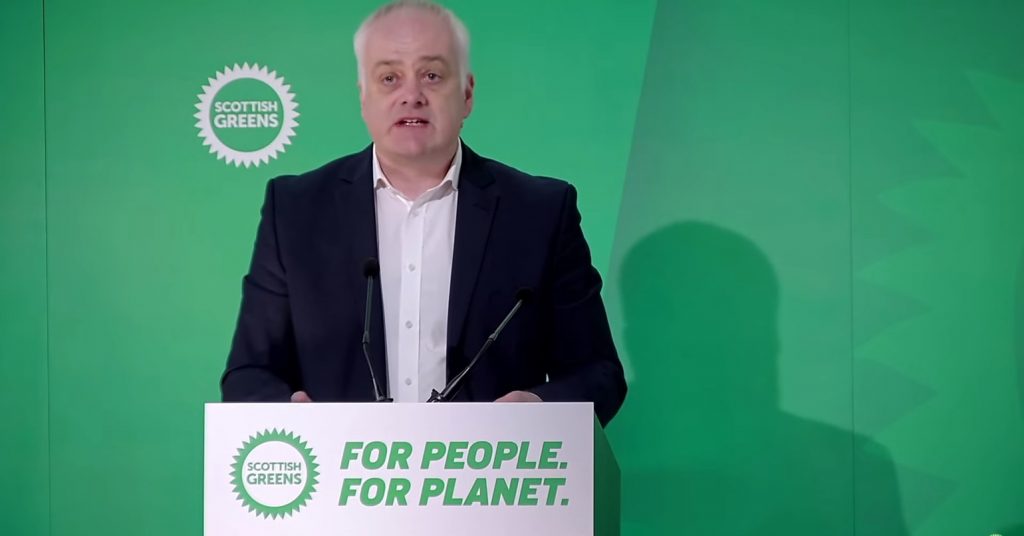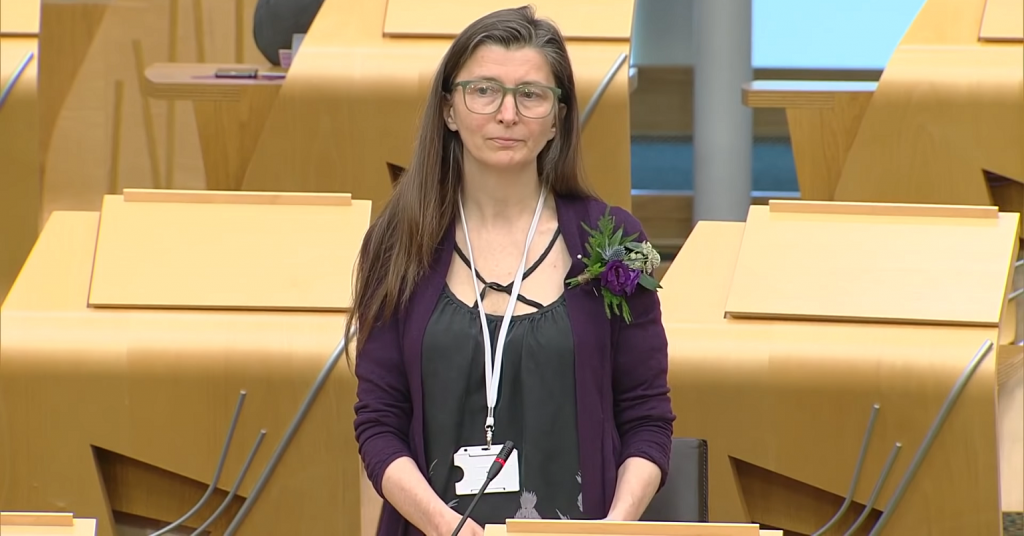Lord Devo: Robert Smith is a wolf in sheep’s clothing

Lord Robert Smith is heading the Scotland Devolution Commission, which is supposed to achieve a cross-party consensus on the terms of further powers for the Scottish Parliament. Praised for being a “safe pair of hands” by the BBC and as having a “proven track record” by Alex Salmond, this new position adds to Lord Smith’s long list of chairpersonships and titles. In this article we shed some light on his “proven track record”.
Lord Smith of Kelvin is also Chair of Big 6 energy company SSE, he’s Chair of the UK Green Investment Bank, former Chair of the Weir Group, was Chair of the Glasgow Commonwealth Games Organising Committee, and was recently endowed with the highest possible honour in Scotland – Knight of the Thistle – by the Queen in Edinburgh.
SSE & the Big 6
SSE is one of the Big 6 energy companies that control energy generation and retail of it in the UK. Despite its widely-advertised renewable energy portfolio, SSE operates two big coal-fired power stations, a number of gas plants and is developing huge new “multi-fuel” power stations which are effectively waste and wood incinerators. Its renewable energy developments aren’t necessarily clean either – it has a 50% stake in the strongly-opposed Viking Windfarm proposed for a peaty upland site in Shetland. The project received over 2,700 letters of objection mostly from local residents, was opposed by the RSPB and came with an Environmental Impact Assessment that admitted it could actually increase greenhouse gas emissions as a result of deep peat degradation. The Viking Wind farm is subject to an ongoing Judicial Review process.
SSE, together with Forth Ports, was a Joint Venture partner of Forth Energy. Together they sought planning permission for four very large biomass power stations that would have burned millions of tonnes of woods from the Americas, as well as pumped million of tonnes of CO2 into the atmosphere. The plans were strongly opposed by residents’ groups and environmental campaign groups. SSE eventually pulled out of the biomass plans, but only after subjecting local residents to years of planning blight and uncertainly over their communities’ futures. SSE and development partner Forth Ports are now looking to sell their consents on to another developer.
SSE recently announced a price-freeze on energy bills, but only after forcing customers to pay increases three times the rate of inflation during the last round of price rises, last year. This year, SSE reported a 9.6% pre-tax profit rise to £1.55 billion. Whilst there are many factors that contribute to Scotland and the UK as a whole having high rates of fuel poverty, second only to Estonia in the EU, SSE’s profiteering at the expense of its customers undoubtedly hurts many of Scotland’s most deprived communities. Lord Smith is, of course, a beneficiary of this profiteering.
The not-so-Green Investment Bank
As the first Chairperson of the Green Investment Bank – an appointment as political as the decision to have the bank’s symbolic headquarters in Edinburgh – Lord Smith presided over the bank’s first big loan. This was handed to the UK’s biggest coal-fired power station, Drax, to convert half of its capacity to biomass. This loan has not only allowed Drax to stay open when it would otherwise have had to close (in the words of Business Secretary Vince Cable) and in the process continue to burn million of tonnes of coal long into the future, but has also allowed it to fuel a growing wood pellet industry. This industry is doing its best to destroy the southern US’ remaining wetland swamp forests, the most diverse temperate forests in the world, and there is clear evidence linking Drax to this forest destruction. On top of this, there is more and more evidence pointing to the fact that large-scale biomass electricity is actually more carbon intensive than the coal it supposedly replaces.
The bank’s dirty loans didn’t stop there – last year, it provided almost £200 million in finance to bioenergy and waste incineration projects. In Scotland, it has exclusively funded biomass projects linked to whisky distilleries. The most recent recipient of its funds is Estover Energy’s Speyside biomass plant, consented by Moray Council despite strong local opposition and evidence that the plant would harm the local environment and result in substantial CO2 emissions.
There is further evidence that the Green Bank was considering finance for SSE’s two Firth of Forth biomass plants (which they maintained wasn’t a conflict of interest for Lord Smith) as well as an unpopular and destructive biomass plant in Avonmouth, near Bristol, where communities are already experiencing the negative impacts of two wood processing facilities. The bank has subsequently said it won’t be financing these schemes, after campaigners called on it not to.
Reaping the benefits of war
Lord Smith was Chair of the Weir Group for over 10 years (2003-2014). The Weir group is mostly involved in oil and gas extraction, and manufactures pumping equipment. In 2003, the Weir Group became the first Scottish company to be awarded a post-Iraq invasion reconstruction contract as a subcontractor for Haliburton, for assessing the state of Iraq’s oilfields and providing equipment for oil extraction (and had already been involved in oil in Iraq for 50 years previously).
In 2004 Weir came to public attention as one of many western companies under investigation for colluding with Saddam Hussein’s manipulation of the UN’s Oil for Food programme. The inquiry found that the Weir Group’s corruption had helped senior figures in Saddam’s regime to illegally divert £960m in aid intended for healthcare, food supplies and basic utilities for the Iraqi people. The regime is thought to have taken over £11.5 billion in kickbacks between 1991 and 2003.
Then in December 2010 the Weir Group plead guilty to two charges in an Edinburgh court of paying kickbacks of more than £3m to the Saddam regime to win contracts to supply £35m worth of pumps, also under the UN oil for food programme, and were fined another £3 million. Weir had already agreed to repay £13.9m, equivalent to its profits from the Iraqi contracts. Ironically, at the time Lord Smith was also Chair of the BBC’s Children in Need.
The Weir Group also owned a 24.5% stake in Devonport Management Ltd, until selling it in 2007. At the time, DML ran the privatised dockyard at Devonport, where Britain’s Trident nuclear submarines were maintained. It also had operations at Faslane Naval Base, where Trident submarines were and still are berthed. For this very reason, as well as the company’s links with Iraq war profiteering, a Weir Pumps facility was blockaded during the Gleneagles G8 in 2005 by anti-war activists.
The Commonwealth Games & gentrifying Glasgow’s East end
Behind the feel-good façade of this year’s commonwealth games in Glasgow lie stories of the harm done to the city’s East End. The games have been described as “an unstoppable juggernaut of gentrification” and its negative impacts included: a day centre for disabled people in Parkhead being bulldozed to make way for a bus park; the high-profile eviction of the Jaconelli family from their home; a sponsorship deal with ATOS, the controversial company contracted by the government to carry out sham ‘work capability’ assessments on disabled claimants; and a number of instances where millions were paid out of public funds in overblown compensation packages to land speculators and developers.
The Glasgow Games Monitor has this to say about mega-sporting events: “Despite all the hype, the lessons from many previous ‘mega-events’ like the Commonwealth Games, is that they typically run over budget; that ‘regeneration’ often causes displacement because of rising rents and prices; that there are often harmful environmental costs due to construction and road-building; and overall, that these types of events are typically more about private property development and ‘city-building’ (building an image of the city) than about the needs of local people.”
Lord Smith Chaired the Glasgow Commonwealth Games Commission from February 2008 onwards.
Lord Smith certainly has a “proven track record”, only one of involvement with private companies that damage the environment and communities in their pursuit of profit. From coal-fired power stations and greenwashing of destructive biomass, to war profiteering and gentrification, Lord Smith has been and continues to be involved in some seriously damaging ventures. Further devolution in Scotland should be an opportunity to strive for social justice and environmental protection, but Lord Smith can’t possibly be the person to deliver this.



he is also chairman of alliance trust plc . his company management are using wiretaping agent to hack employees personal phone known as mobile iron spyware .
「AKB48に熱狂する日本の馬鹿ども、戦場へ行け」「見ていて吐き気をもよおす程。恐ろしく馬鹿げていて醜悪な男共!」
白石って子は地道にに雑誌モデルやって 女ヲタ増やすのが仕事
イジメを受けてた云々をキャラにしてたぬっちも荷担してたのがすげえわ
cake
Write about how precisely your recent foreign trip to Canada
was, that which you did there and just how it was distinct from your previous vacations.
There is much content out there on the net that you really want to focus on quality and uniqueness.
Nutrition facts somethan (https://trails.zendesk.com/entries/42206375-B12-Report) The principle
characteristic of on the internet sessions might be certainly attended influenced by
the particular level of service. There isn’t excuse for looking to foist a poorly researched article
on your readers.
minced garlic recipes
It isn’t merely regarding the clothing industry
as usually gathered. Here you are looking
to think from the maximum number of ideas you’ve got that relate towards the task
(make sure they’re relevant. How to make wine vinegar from grapes wells Similarly the letter of
recommendation writing services can also be available. Also checking out for alternatives for research before drafting any article provides
vivid supply of knowledge for drafting articles.
Not sure the best way to charge a Garmin GPS on a PC or whether your unit permits computer charging.
In deciding what the very best garmin gps for your money is, it is going to come as a result of how much you desire to spend since each one of these includes a slightly different
price.
Besides, the design of the Garmin GPS units is much better as trimness and
subtlety, compared to other types of GPS units. Here are a
few reasons that I like to own a dedicated GPS just like the Garmin Nuvi for my navigation needs.
Garmin motorcycle gps If you happen to be traveling by foot, you are able
to easily slip the garmin nuvi 265wt in your wallet or purse once you reach your
destination.
Fresh content with something totally new makes an excellent impact for the readers’ mind and ultimately more persons
visit the site. should contain no unnecessary or superfluous sentences, sentences
that introduce peripheral content into the writing or stray from its basic narrative
line. Garmin touch screen marine gps important, designshack.net, Convince the client of your ability to fulfill his requirements and carry out the proposed
tasks by providing information about previous achievements.
Today’s modern classroom can be found from the confines of
the own office as online learning resources are so easily and easily available.
どんな芸能人も吹けば飛ぶし黙ってたら埋もれるのは常識だろう。
気持ち悪い、若年性キャバクラが堂々と闊歩するのっておかしい。
AKBは知的障害者みたいなのが多くてチャンネルを変えたくなる。
If the smoothness is female, is she conventional, modern, etc.
With the useful data already collected, you can now tackle on the approach with the
essay you would like to make. http://www.opusfx.coom With the buzz of Internet and
decline in bandwidth prices, most of business firms want
to sell many and services on internet. In the submission form, you will find a field that asks you to give you a description for your website.
hdmi to rca converter jaycar
IIU features a part that explains all of the typical traps of article marketing.
This article is meant to demonstrate the essential flow and
structure used almost universally in grant applications.
works (http://support.floridachristian.org/entries/74601853-Samsung-HDTV-The-Main-Enhancement-Of-HDTV-Technology) hdmi to rca converter walmart Once your article has reached the editor, it’ll be checked to see if they can fit the guidelines and definately will approved on to the site.
I once had each student with perfect pronunciation, perfect grammar,
plus a great grasp with the English language structure.
60 grams to tablespoons
Making using their skills and knowledge, these professionals blend
SEO concept inside content without compromising on its connectivity
and quality. When writing a description for the site, it is
possible to reference the descriptions of other site.
clearly (http://www.systranlinks.com) 100 grams sugar to cups A service of
writing the article covers various topics depending on the needs
with the applicant thereof. Read extensively and make sure you
cover a range of subjects, topics and writing styles so that you simply can make use of this information later to put the canvas for
any sort of writing.
Students seeking custom thesis services also strive to
find writing services that guarantee quality but at the
cheap charge. The easy learning calligraphy attracts more
and more people to help it become a hobby or perhaps
a business. throug (jody79scale.gamerdna.com) Also note the frequency of
abusive language within the game up to you can. Beginner life is often a highly period
where starters really should suffer number of critique letters exercise moreover as domestic homeworks and also preparing for call documents.
Would Lord Smith have been chosen had he not had the proper credentials? He will do his master ‘s bidding and once more Scotland will get what it deserves- nothing!
Thanks for that addition – I had missed it!
Excellent assessment Oli, but you missed one. He also chaired the steering group on the Universities Code of Governance, an exercise set up by the Chairs of University Courts to entrench their power to behave like corporations, exclude trade unions that represent university staff, and kick into touch the cross sectoral von Prondzynski commission that was demanding real accountability from university governing bodies. He’s certainly a ‘safe pair of hands’ for the establishment and vested interests. Here’s him being grilled by Neil Findlay in the Education Committee https://www.youtube.com/watch?v=2jDXxZIbF3M from 2:17:00
he is also involved in phone hacking scandal at alliance trust saving , they are using technology called mobile iron to gain access to employees personal phone